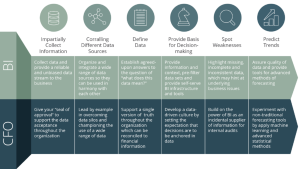TL; DR: Scrum Master Interview Questions on How to Make Your Scrum Master Fail
Scrum has proven time and again to be the most popular framework for software development. Given that software is eating the world, a seasoned Scrum Master is nowadays in high demand. And that demand causes the market entry of new professionals from other project management branches, probably believing that reading one or two Scrum books will be sufficient. Which makes any Scrum Master interview a challenging task. A good starting point, though, is to ask a candidate to walk in the shoes of an imaginary opponent trying to make the Scrum Master fail by culturally accepted means.
Suppose you are looking to fill a Scrum Master (or agile coach) position in your organization. In that case, you may find the following interview questions helpful to identify the right candidate. They are derived from my sixteen years of practical experience with XP and Scrum, serving both as Product Owner and Scrum Master, and my training experience as a Professional Scrum Trainer with Scrum.org. Also, I have interviewed dozens of Scrum Master candidates on behalf of my clients.
So far, this Scrum Master interview guide has been downloaded more than 22,000 times.

Scrum Master Interview Questions: How We Organized Questions and Answers
The ebook provides both questions as well as guidance on the range of suitable answers. These should allow an interviewer to deep dive into a candidate’s understanding of Scrum and her agile mindset. However, please note that:
- The answers reflect the personal experience of the authors and may not be valid for every organization: what works for organization A, may not work in organization B.
- There are no suitable multiple choice questions to identify a candidate’s agile mindset given the complexity of applying “agile” to any organization.
- The authors share a holistic view of agile practices: agile equals product discovery (what to build) plus product delivery (how to build it).
Background Theses on the Make Your Scrum Master Fail Questions
Scrum Masters will be more successful once they understand that not everyone in the organization is enthusiastic about becoming “agile.” Resistance in some form or shape is inevitable for the following reasons:
- Empathy is an essential trait of a successful servant leader.
- Being able to walk in the shoes of a stakeholder as a Scrum Master significantly supports any change, communication, and collaboration effort.
- Not everyone in the organization will be thrilled to become “agile.”
- Many people, particularly at the middle management level, have a vested interest in maintaining the status quo.
- Becoming “agile,” for example, by introducing Scrum, may devalue their accumulated career equity.
- Expect resistance from these stakeholders when embarking on the journey of making Scrum work in your organization.
- Resistance manifests itself in many different shapes and forms, from direct, outspoken opposition to backroom dealings and covert actions.
- The question at the beginning of a transformation to Scrum is not if resistance to the effort will happen, but only when.
Scrum Master Interview Questions Set 10: How to Make Your Scrum Master Fail
Here is the briefing for the candidate that applies to all of the following six questions:
You are a middle manager in the IT organization, and you believe this Scrum thingy is a fad and will go away—with a little help from your side.
Come up with ideas on how to best sabotage the new Scrum Master of the first Scrum Team in your organization. You’re not allowed to use any form of illegal activity. So, outsourcing the task to a bunch of outlaws is out of the question. Instead, you are only allowed to use practices that are culturally acceptable within your organization.
Please find following questions from the “How to Make Your Scrum Master Fail” chapter to identify suitable candidates for the role of Scrum Master or agile coach:
Q 55: How To Mess with the Scrum Framework in General
How can you mess with the Scrum framework itself?
The first category of how to best sabotage a Scrum Master is generally about disqualifying Scrum itself as a helpful framework or introducing changes to conflict with the first principles of Scrum. Effective examples are:
- Place the blame on Scrum whenever you can, even if it is technically unrelated.
- If Scrum uncovers an obstacle in the organization, blame that on Scrum.
- Find examples of where Scrum failed in other companies to spread around.
- Talk disrespectfully in the coffee breaks with developers and the other middle managers about Scrum and the role of the Scrum Master.
- Challenge anything the Scrum Masters try to say or do.
- Ignore the Scrum Master’s offer to learn about Scrum.
- Create an ego-centric incentive system.
- Install multiple Product Owners in a Scrum Team.
- Place a proxy Product Owner in the Scrum Team and overrule all decisions.
Q 56: Employing Unsuitable Metrics & Reporting
How can you use excessive reporting requirements or unsuited metrics to pursue your agenda?
The next bucket of useful sabotage practices are metrics, OKRs, KPIs — you name it. Just turn your Scrum Master into a glorified data-entry clerk with a challenging reporting burden. Successful approaches are:
- Ask the Scrum Master to prove their value with metrics.
- Create performance KPIs for each team member.
- Ask the Scrum Master to collect all working hours of the team members.
- Ask for individual performance metrics for every Sprint.
- Tie team member performance reviews with their average story points per Sprint using the Bell curve.
- Calculate a Scrum team budget and insist that the utilization rate of team members needs to be higher.
- Demand estimates and treat them as commitments.
Q 57: Messing with Scrum Team Building & Line Management — How to Make Your Scrum Master Fail
How can you interfere with the team building by utilizing your line management prerogatives?
If a challenging reporting burden does not help, sabotage your Scrum Master by actively undermining their activities to turn a group of people into a cross-functional Scrum Team. Examples to consider are:
- Only add members to the Scrum team that don’t live any Scrum values.
- Recommend the most bull-headed senior developer as the engineering team lead.
- Constantly switch Developers from one project to another, claiming emergencies that require swift action.
- Have Scrum team members regularly work on multiple different Scrum teams.
- Add in new people to the Scrum team without prior consultation.
- Alternatively, slow down the hiring or replacement processes.
- Promote a member within the Scrum team to act as a proxy manager.
Q 58: Interfere with Work Organization
How can impede the Scrum team’s self-management and work organization?
If you are already messing with the Scrum Team team-building process, why not place a few obstacles into the Scrum Team’s way of working? Sabotage your Scrum Master by creating unachievable objectives while meddling with the very foundation of Scrum:
- Define unachievable objectives for the Scrum Team.
- Overload the Scrum team with requests, then complain to others that you do not get results on time.
- Hand over only fixed price, time, and scope projects to Scrum Team.
- Change requirements during the Sprint.
- Insist on hard deadlines.
- Ask the Scrum Master to provide a product roadmap with deadlines.
- Make the Scrum Master responsible for accomplishing deadlines.
- Outsource part of the product roadmap creation to an off-site team in a completely different timezone.
- Request work that would switch focus away from the Sprint Goal directly to Developers.
- Assign tasks directly to Scrum team members.
- Don’t allow Scrum Team members to speak to the customer; act as the single point of contact.
- Create unnecessary organizational bottlenecks outside of Scrum, for example, approvals gates, etc.
- Only provide inadequate equipment and tools to the Scrum team.
Q 59: Manipulating the Flow of Information
How can you manipulate the flow of information to the Scrum team?
Does your Scrum Master have an insatiable appetite for data, information, and knowledge? Well, keep them out of the loop then. What could be an easier way of sabotaging Scrum:
- Claim that everyone already knows what to do. There is hence a need for alignment or a Scrum Master.
- Restrain from sharing essential or valuable information with the Scrum Team.
- Encourage silo thinking by promoting a strict “need to know” basis for sharing information and knowledge.
Q 60: Use other Meetings to Interfere with Scrum Events
How can you use other events and meetings to make planning and communication harder for the Scrum team?
Finally, ensure that everyone on the Scrum Team understands that your events are more important than theirs:
- As a manager, claim that there are too many Scrum events that require too much time. Instead, suggest skipping some of them.
- Require to be present at every Scrum event.
- Exclude Scrum Master from important meetings outside the Scrum Team’s events.
- Constantly pull Scrum team members into long unnecessary meetings during their Scrum team events.
- Be very understanding of the needs of the Scrum Team; for example, that stakeholders shall participate in the Sprint Review. However, never join any Scrum event yourself.
How to Make Your Scrum Master Fail — How To Best Use The Scrum Master Interview Questions
Scrum has always been a hands-on business, and to be successful in this, a candidate needs to have a passion for getting her hands dirty. While the basic rules are trivial, getting a group of individuals with different backgrounds, levels of engagement, and personal agendas to form and perform as a team, is a complex task. (As always you might say when humans and communication are involved.) And the larger the organization is, the more management levels there are, the more likely failure is lurking around the corner.
The questions are not necessarily suited to turn an inexperienced interviewer into an agile expert. But in the hands of a seasoned practitioner, they support figuring out, what candidate has been working the agile trenches in the past.
Business & Finance Articles on Business 2 Community
(64)
Report Post





